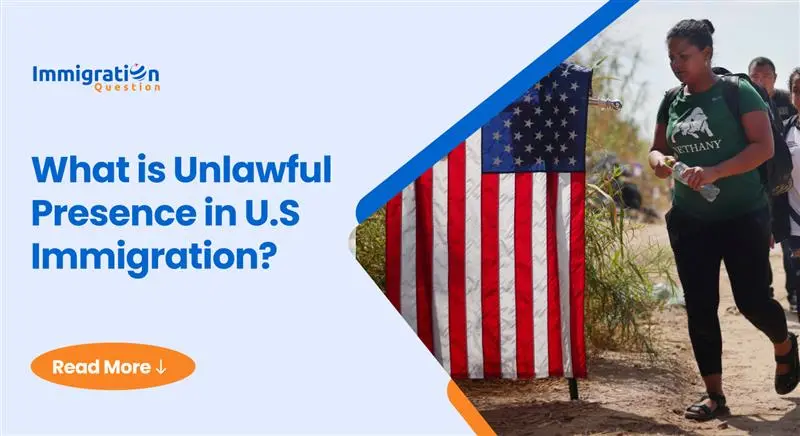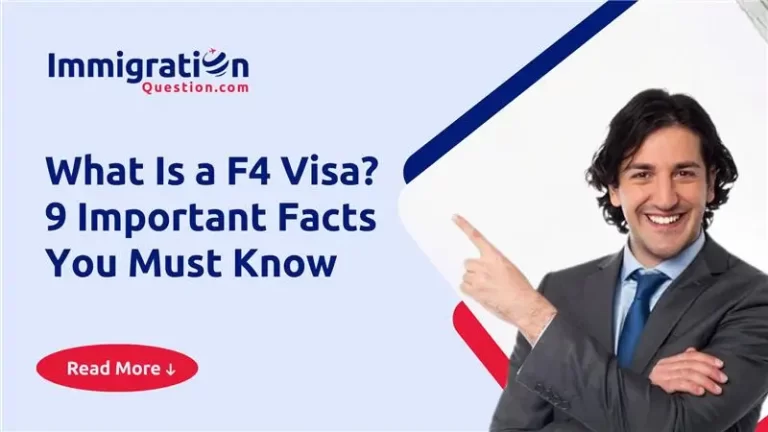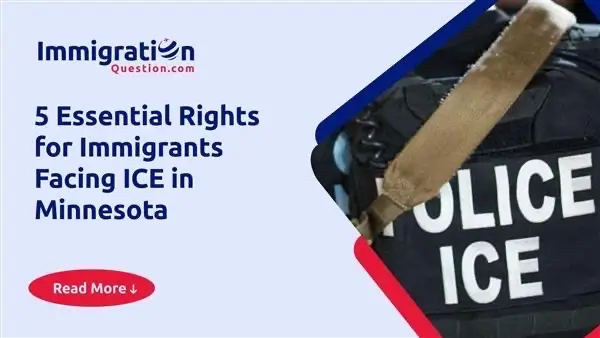Immigration Question connects immigrants with verified and experienced immigration attorneys who provide professional guidance. One of the most essential issues immigrants face is the concept of unlawful presence in the United States. Unlawful presence is a topic that confuses many and can lead to serious legal consequences if misunderstood.
This blog explains what unlawful presence means, how it is calculated, and how an Immigration Question attorney can guide you through this tricky legal terrain.
What Is Unlawful Presence?
Unlawful presence refers to any period when a noncitizen is in the United States without being admitted or paroled or has remained beyond the expiration of their lawful stay as authorized by the Department of Homeland Security (DHS).
In simpler terms, if you are in the U.S. without permission, or if your permitted stay has expired and you have not left or changed your status, you are likely accruing.
Understanding this concept is essential, as even a short period of unlawful can lead to severe immigration penalties, including three-year, ten-year, or even permanent bars to re-entry.
Accruing Unlawful Presence
According to INA 212(a)(9)(B)(ii), you begin accruing unlawful presence if:
- You entered the U.S. without inspection or admission/parole;
- You stayed beyond your authorized period, as your Form I-94 (Arrival/Departure Record) indicated.
It begins the day of entry for those who entered the U.S. without proper authorization.
If you entered legally and were issued a Form I-94 with an expiration date, it begins the day after that expiration. However, if you were admitted for Duration of Status (D/S), common for F-1 students, J-1 exchange visitors, and M-1 vocational students, then it begins only after a status violation has been determined by USCIS or an Immigration Judge.
A qualified Immigration Question lawyer can help you review your papers and determine whether you are at risk of accruing it.
Exceptions to the Rule
Not everyone accrues unlawful presence the same way. The law provides exceptions, including:
- Minors under 18 years of age
- Asylum applicants with bona fide, pending cases
- Family Unity beneficiaries under the Immigration Act of 1990
- VAWA petitioners (battered spouses and children)
- Victims of human trafficking who can demonstrate that the trafficking was a central reason
If you fall under any of these categories, speak with an Immigration Question attorney to ensure your rights are protected and your status is accurately assessed.
Out of Status vs. Unlawful Presence
You must understand that being “out of status” is not the same as being unlawful.
For instance, an H-1B worker who stops working for their sponsor is out of status, but they are not necessarily accruing unlawful presence unless their I-94 has expired. Similarly, a student on an F-1 visa who drops out of school is out of status but will only begin to accrue unlawful presence once USCIS or an Immigration Judge officially makes that determination.
The line between the two can be thin, and that’s where an Immigration Question lawyer becomes indispensable in avoiding unintended legal consequences.
Unlawful Presence for F, J, and M Visa Holders
Initially, Unlawful for F (student), J (exchange visitor), and M (vocational student) visa holders starts:
- The day after USCIS or an Immigration Judge determines a status violation
- The day after you engage in unauthorized activity
- The day after completing your course or employment, if you stay beyond the grace period
However, on August 9, 2018, USCIS revised its policy on when unlawful presence begins for these visa categories. Under the revised guidelines, unlawful presence generally starts on the date the individual violates the terms of their visa status.
It is vital to stay updated on your visa obligations and consult an Immigration Question attorney if your circumstances change.
Impact of Temporary Protected Status (TPS)
If you have been granted Temporary Protected Status (TPS), you are considered to be in lawful status while that protection is in place. However, TPS does not erase unlawful presence accrued before the grant.
If you have accumulated more than 180 days of unlawful presence before TPS and plan to travel or adjust your status, talk with an Immigration Question lawyer before making any decisions. Special waivers may apply, and you may still face inadmissibility issues despite your current protected status.
Voluntary Departure and Unlawful Presence
A Voluntary Departure (VD) grant protects you from accruing only if you leave the U.S. within the permitted departure window.
If you overstay that deadline, you start accruing it immediately. An Immigration Question attorney can help you determine whether VD is the best option or if alternatives exist.
Stay of Removal Orders
If the DHS, EOIR, or a Federal Court grants you a stay of removal, you are shielded from accruing unlawful presence as long as the stay remains active.
If you file a motion to reopen a removal case after an order has been issued, the period during which the motion is pending also does not count as unlawful presence. Again, legal guidance from an Immigration Question lawyer can ensure you take the proper steps while reviewing your case.
Cancellation of Removal
If you are granted Cancellation of Removal:
- Green card holders (LPRs) retain their LPR status, and no unlawful presence is counted.
- Non-permanent residents are forgiven for any unlawful presence before the cancellation is granted.
Cancellation of Removal is a powerful relief but requires demonstrating hardship and good moral character. An experienced Immigration Question attorney can help you present a strong case.
Waivers for Inadmissibility
You may be eligible for a waiver if you are subject to the 3-year or 10-year bars for it. Eligibility depends on demonstrating:
- Extreme hardship to a U.S. citizen or permanent resident spouse or parent
- Eligibility under certain humanitarian provisions
If a consular officer finds that you may qualify for a waiver, you will be informed of the application steps.
Do Not Navigate Unlawful Presence Alone
Unlawfulness is a high-stakes issue. It is easy to unintentionally fall out of legal status or misunderstand how your situation is classified. Connecting with a qualified Immigration Question lawyer is one of the most important steps.
Our network of immigration attorneys is here to offer you clarity, options, and trusted legal support. Visit Immigration Question today to get started.











